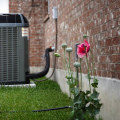What is MERV Rating in Air Filters?
The MERV rating system serves as a crucial metric in assessing the filtration efficiency of air filters, thereby significantly contributing to the maintenance of indoor air quality. Defined by its capacity to trap particles of varying sizes, the MERV rating aids consumers in selecting appropriate filters tailored to their specific needs. This aims to elucidate the importance of MERV ratings in air filters, guiding readers toward informed decisions regarding filter selection and maintenance practices.
Importance of Indoor Air Quality
The importance of maintaining high indoor air quality is widely recognized due to its significant impact on human health and well-being. Indoor air quality has a direct correlation with various health benefits, including reducing respiratory issues, allergies, and asthma exacerbation. Furthermore, ensuring good indoor air quality can result in cost-effectiveness by decreasing medical expenses associated with poor indoor air.
In addition to the health benefits, maintaining high indoor air quality also contributes to energy savings and improved productivity. Proper ventilation and filtration systems not only enhance the overall quality of indoor air but also lead to reduced energy consumption by optimizing heating and cooling processes. Moreover, better indoor air quality has been linked to improved cognitive function and concentration levels, consequently enhancing productivity in various settings such as workplaces and educational institutions.
Definition of MERV Rating
Characterized by a numerical scale ranging from 1 to 20, this system evaluates the effectiveness of a filter in trapping particles of various sizes. The Minimum Efficiency Reporting Value (MERV) rating is used to assess how well an air filter removes airborne particles from the air passing through it. Higher MERV ratings indicate better filter performance and efficiency in capturing smaller particles. These ratings are important as they help consumers understand the level of filtration provided by different types of filters, aiding them in selecting the most suitable option based on their needs.
About air quality standards, MERV ratings play a significant role in ensuring that indoor environments meet specific cleanliness requirements. Different settings such as hospitals, laboratories, or residential buildings may have varying air quality standards that need to be maintained for health and safety reasons. By using filters with appropriate MERV ratings, it is possible to control indoor air quality effectively and adhere to these standards.
Particle Size Efficiency
The range of particle sizes captured by various MERV ratings provides crucial insight into the effectiveness of air filters in removing contaminants from indoor air. Understanding how different MERV ratings correspond to specific particle sizes aids in selecting filters that align with desired air quality standards. Comparing MERV ratings to other established air filter standards offers a comprehensive evaluation of their efficiency and suitability for different environments.
Range of particle sizes captured by different MERV ratings
Demonstrating varying efficiency levels, MERV ratings encompass a spectrum of particle sizes captured by air filters. The particle size distribution influences filtration performance, where higher MERV ratings correspond to filters capable of capturing smaller particles effectively. Filters with MERV ratings between 1 and 4 are most suitable for capturing larger particles like dust and pollen, while those rated from 5 to 13 offer improved effectiveness against finer particles such as mold spores and pet dander. Furthermore, filters with MERV ratings above 13 provide superior filtration for very small particles like bacteria and smoke. Understanding the range of particle sizes each MERV rating targets is crucial in selecting an air filter that best suits specific indoor air quality needs.
Comparison of MERV ratings to other air filter standards
In comparison to other standards for particulate filtration, MERV ratings provide a widely recognized benchmark for evaluating the effectiveness of various filtration methods. Filter performance is crucial in maintaining indoor air quality standards, as airborne particles can impact respiratory health and overall well-being. While MERV ratings focus on the efficiency of filters in capturing particles of varying sizes, other air quality standards may emphasize different aspects such as airflow resistance, energy consumption, or specific pollutant removal capabilities. Understanding how MERV ratings align with these alternative standards can help consumers make informed decisions when selecting air filters for their specific needs. By considering filter performance within the context of broader air quality standards, individuals can optimize indoor environments for healthier living conditions.
Choosing the Right MERV Rating
Considerations for selecting the appropriate MERV rating involve evaluating the specific air quality requirements and particulate matter present in your environment. Balancing filtration efficiency with airflow restrictions requires a careful assessment of the trade-off between capturing smaller particles and potential limitations on air circulation within the system. It is crucial to strike a harmonious equilibrium between achieving high filtration performance and ensuring sufficient airflow to maintain optimal HVAC functionality.
Considerations for selecting the appropriate MERV rating for your needs
When selecting the appropriate MERV rating for air filters, it is important to consider factors such as the specific indoor air quality needs and the HVAC system's compatibility with higher MERV ratings. In terms of cost analysis, higher MERV-rated filters generally come at a higher price point due to their enhanced filtration capabilities. However, this increased cost may be justified by potential savings in energy consumption and reduced maintenance costs associated with cleaner HVAC systems. Moreover, for allergy prevention, a higher MERV rating can be beneficial as it captures smaller particles like pollen, pet dander, and mold spores more effectively, thus improving indoor air quality for individuals prone to allergies or respiratory issues.
Balancing filtration efficiency with airflow restrictions
Achieving optimal performance involves maintaining a delicate equilibrium between filtration efficiency and the potential constraints on airflow in HVAC systems. Airflow optimization is crucial for ensuring that the system operates efficiently while also providing adequate air quality benefits. When considering filtration effectiveness, it is essential to weigh the performance trade-offs that may arise from using filters with higher MERV ratings, which can lead to increased pressure drops and decreased airflow. Balancing these factors is key to maximizing both filtration efficiency and airflow within HVAC systems. By carefully selecting air filters that strike the right balance, one can achieve improved indoor air quality without compromising the overall performance of the system.
Maintenance and Replacement
Regarding maintenance and replacement of air filters, it is recommended to adhere to the manufacturer's guidelines for optimal performance and air quality. Filter replacement should be done at regular intervals as specified by the manufacturer to ensure the efficiency of the filtration system. Neglecting filter maintenance can lead to a buildup of contaminants that not only reduce the effectiveness of the filter but also affect indoor air quality.
Proper filter maintenance involves inspecting the filter regularly for any signs of clogging or damage. Filters should be replaced promptly if they appear dirty or damaged beyond cleaning. Maintaining clean filters ensures that airflow is not restricted, preventing strain on the HVAC system and promoting energy efficiency. Clean filters contribute to better indoor air quality by trapping airborne particles effectively.
Impact on HVAC System
The efficiency of the HVAC system may be significantly influenced by the regular replacement and proper maintenance of filtration components. Air filters play a crucial role in the overall performance of heating, ventilation, and air conditioning systems. Neglecting filter replacements can lead to reduced airflow, increased energy consumption, and compromised indoor air quality. Filters with higher Minimum Efficiency Reporting Value (MERV) ratings are more effective at trapping particles but can also restrict airflow if not changed regularly.
Proper maintenance and timely replacement of air filters can have a substantial impact on energy consumption. Clogged or dirty filters force the HVAC system to work harder to maintain desired temperatures, leading to increased energy usage and higher utility bills. By ensuring that filters are clean and replaced according to manufacturer recommendations, homeowners can improve the efficiency of their HVAC systems, resulting in cost savings over time.
Environmental Considerations
Environmental considerations play a crucial role in determining the sustainability and long-term impact of HVAC systems on the surrounding ecosystem. Sustainable practices in HVAC operation are essential to minimize energy consumption and reduce the carbon footprint associated with heating, ventilation, and air conditioning systems. By adopting green living principles and implementing energy-efficient technologies, such as high-efficiency filters and programmable thermostats, HVAC systems can significantly decrease their environmental impact.
Reducing energy consumption through proper system design, regular maintenance, and efficient insulation not only benefits the environment but also contributes to cost savings for users. Selecting HVAC equipment with high Seasonal Energy Efficiency Ratio (SEER) ratings can enhance energy efficiency while lowering greenhouse gas emissions. Additionally, incorporating renewable energy sources like solar power to supplement traditional heating and cooling methods further promotes sustainable practices in HVAC operations.
Overall, prioritizing environmental considerations in HVAC system management is integral to mitigating negative ecological effects and advancing toward a greener future with reduced carbon emissions.
Frequently Asked Questions
Can MERV ratings be compared across different brands and types of air filters?
Merv ratings can be compared across different brands and types of air filters for performance evaluation. However, it is important to note that the effectiveness of a filter may vary based on factors such as filter material and design.
Are there any health risks associated with using air filters with a high MERV rating?
Health implications of using air filters with high MERV ratings may include decreased airflow, strain on HVAC systems, and potential for increased energy consumption. However, these filters effectively improve indoor air quality by capturing more pollutants.
How often should air filters be replaced to maintain optimal efficiency?
Air filters should be replaced every 1-3 months to maintain optimal efficiency. Regular replacement can help prevent airflow blockages and reduce energy costs. DIY maintenance and troubleshooting can extend the lifespan of air filters, minimizing replacement frequency and cost.
Are there any specific guidelines for disposing of used air filters with different MERV ratings?
Proper disposal of used air filters with different MERV ratings is essential. Recycling options vary depending on the materials used in the filter. It is recommended to check local recycling facilities or contact manufacturers for specific guidelines.
Can air filters with a higher MERV rating impact the energy efficiency of HVAC systems in different ways?
Air filters with a higher MERV rating can impact the energy efficiency of HVAC systems by potentially reducing airflow, which may lead to increased energy consumption. However, they can also improve performance and longevity with proper maintenance.
Here is the nearest branch location serving the Plantation FL area…
Filterbuy HVAC Solutions - Weston FL
2573 Mayfair Ln, Weston, FL 33327
(754) 296-3528
https://maps.app.goo.gl/CanZVexXdHWePawN9
Here are driving directions to the nearest branch location serving Plantation…

